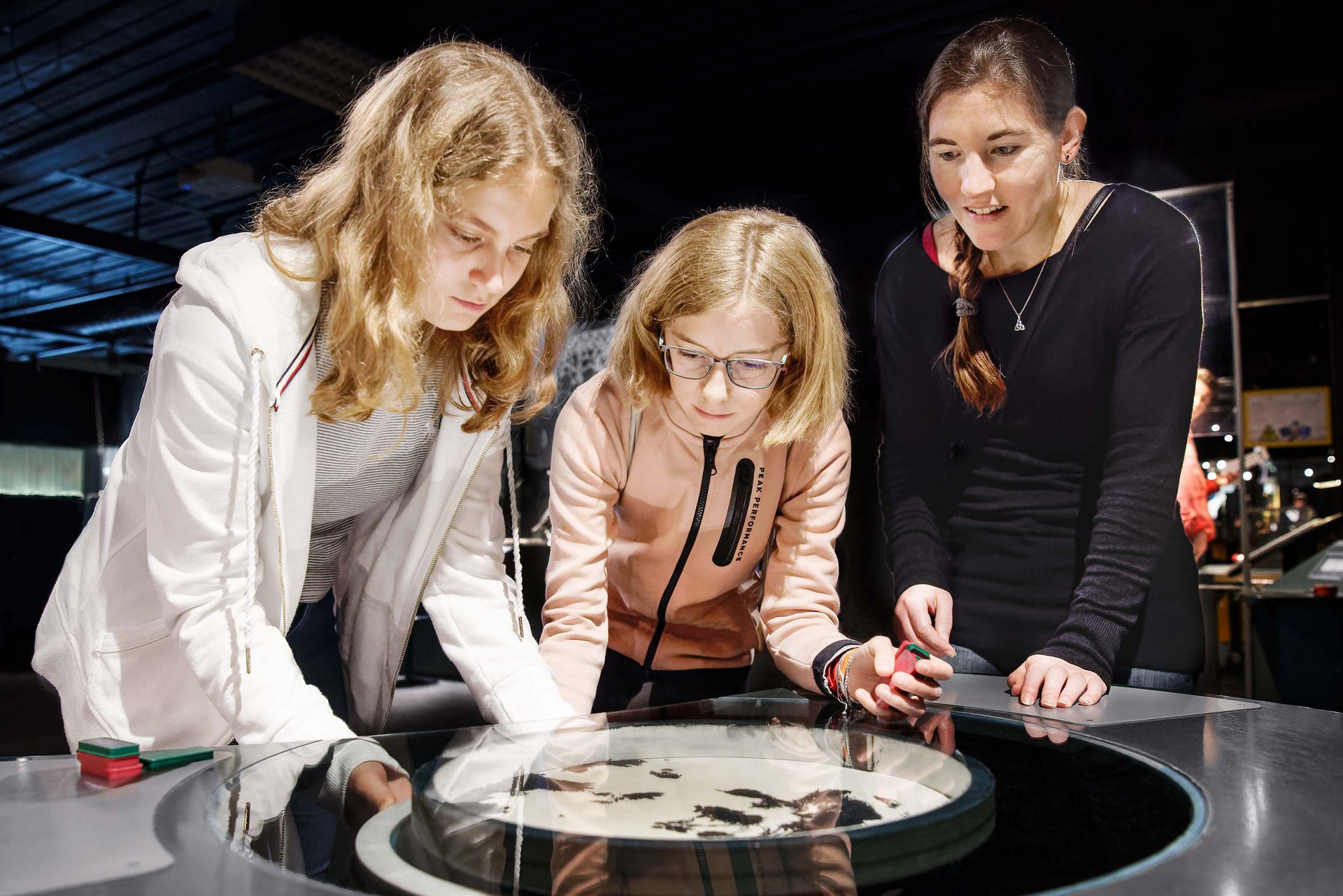News

All in: girl power for technology
The fact that girls are interested in robotics and programming often goes unnoticed—and they also receive little support. To change this, the Swiss TecLadies Mentoring Programme encourages girls aged 13 to 16 to cultivate their curiosity for science and technology.
“The girls get all fired up when they can make something move,” says Astrid Hügli, head of the Swiss TecLadies Mentoring Programme. MAN, a commercial vehicle manufacturer, had organised a workshop for the girls to try their hand at software coding, and programming mini self-driving cars proved a big hit with the girls. “They were all completely absorbed by it,” Hügli says with a smile, adding that the girls were especially intrigued by robotics. As an engineer and secondaryschool teacher of science and technology, Astrid Hügli knows what she is talking about. Her experience and know-how were instrumental in shaping the mentoring programme, which is run by the Swiss Academy for Technical Sciences (SATW) and supported by the Werner Siemens Foundation.
Making discoveries together
The mentoring programme unites 44 women from technical or scientific professions (mentors) with 44 girls aged 13 to 16 (mentees). Finding the right mentor for each mentee proved challenging, as the women and girls came from all over German-speaking Switzerland and long trips were to be avoided. At the same time, the subjectspecific interests needed to be considered: the most popular subjects among the girls were robotics and medical technology. Because developing trust is an important aim of the mentoring programme, the mentors and mentees are free to decide for themselves whether to meet at the mentor’s place of work or privately. In particular, it is important for the girls to see that women in technical professions are not exotic creatures, but rather people with perfectly normal lives. And so “ a Ferris wheel ride or walking the dog were also good activities”, Astrid Hügli explains. Some mentors were even invited by the mentees and their parents to their homes. As part of the mentoring programme, 16 workshops were held in a variety of firms. Although they were voluntary, Astrid Hügli was pleased to see that attendance was high. There were also various learning excursions on offer, such as a visit to the Paul Scherrer Institute, Switzerland’s largest research institution for engineering and natural sciences, and a day at RUAG Space, a division of Swiss technology firm RUAG. Finally, two career days, run with support from the Canton of Zurich office for gender equality, were held to help the girls develop self-confidence and learn strategies for asserting themselves in male-dominated professions.

Building a network
The first programme concluded in June 2019, and the second will begin in late 2020. In addition, a network has already been established for the women and girls to maintain their contact through organised gatherings. At regular intervals, the girls from the programme are asked about their career aspirations; currently 60 percent of the participants have serious intentions of pursuing a technical career. When the time comes for the girls to choose a profession, the mentors will be available again to offer their advice. The activities and interests shared by the mentors and mentees have paved the way for lasting contact, and all the women and girls took part in the programme’s final event: a trip to Europa-Park, Germany’s largest theme park.
Shooting for the stars
13-year-old Rahel Rüefli from the town of Grenchen is one of the girls who took part in the Swiss TecLadies mentoring programme. She liked it so much, she wishes she could take part a second time. When asked about her future goals, Rahel does not hesitate: “ I want to travel to the International Space Station.” The secondary-school student has long been interested in astrophysics and rocket technology, and so she found the programme’s tour of the RUAG Space company “totally cool”. Together with the mentors and her peers in the Swiss TecLadies mentoring programme, she visited several research institutes, universities and firms, and also attended workshops. Now she has been to the Paul Scherrer Institute twice—and was no less fascinated the second time around by the experiments with the particle accelerator. It was Rahel’s mother—well aware of her daughter’s enthusiasm for science— who drew her attention to the mentoring programme. Because she has made the experience that not too many girls share her interest in technical subjects, one of the things Rahel liked best about the Swiss TecLadies programme was working together with like-minded girls.
Text: Sabine Witt
Photos: Felix Wey